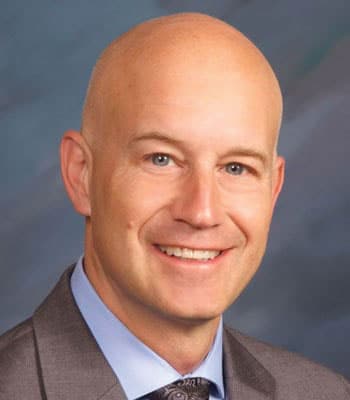Battle for deposits heats up as bankers face fin-tech competition, rate bumps
BROOMFIELD — With interest rates and non-traditional competitors on the rise, bankers in the Boulder Valley and Northern Colorado must get creative to maintain the deposit balances they’ve grown accustomed to in recent years.
“The fin-techs are eroding the power” of banks to offer better rates and more convenience to customers, so institutions must lean more on customers service, creativity and relationship management, High Plains Bank CEO John Creighton said during BizWest’s Banking CEO Roundtable held Tuesday at the Broomfield offices at Plante Moran.
Due in large part to increased competition, “you’ve got to be profitable on each deal, and it’s becoming more of a challenge,” said Bonifacio Sandoval, senior vice president for commercial banking at Adams Bank & Trust.
One way banks can fend off out-of-town fin-tech competitors is by emphasizing to clients the “important[ance of keeping] deposits in your community,” High Plains’ Longmont market president Narciso Garibay said.
Messaging, however, can be a challenge because of “all kinds of different noise with new kinds of competition coming online,” MidFirst Bank vice president Susan Moratelli said.
While individual account holders may be more apt to try non-traditional options for their deposits, commercial customers may be more likely to do business with people and institutions they trust. “We’ve placed an emphasis on business banking,” FirstBank’s Boulder market president Chad Mitchell said.
That said, “excellent customer service is a great place to start, but excellent customer service is not enough,” Bank of Colorado’s Boulder market president Aaron Spear said.
Strategies such as tying interest rates on lines of credit to deposit volumes could help differentiate local institutions, Sandoval said, asking rhetorically, “What are some other mechanics you can use to tie customers to the bank a little more stickier?”
According to Elevations Credit Union CEO Gerry Agnes, “The fundamental issue of banking is trust.” So, losing some deposit volume to competitors is less detrimental to local operators than losing client relationships.
Bob Gaddis, senior vice president at BOK Financial, agreed and said, “We’re all doing the same stuff” in terms of offerings, so relationships become all the more important.
Fin-tech companies aren’t the only source of competition for local institutions. Brick-and-mortar operators such as Colorado Springs-headquartered Ent Credit Union have identified the region as being ripe for expansion. Those operators must also build local relationships to ensure long-term success in the Boulder Valley and Northern Colorado.
“Being newer to Northern Colorado, we’re still working to gain the trust that we have in Colorado Springs,” Ent’s Northern Colorado senior vice president Chris Chippindale said.
The U.S. Federal Reserve’s posture on rate hikes is also changing the game for bankers. It’s unclear when and whether the market will ever return to a super-low-rate environment.
“This could be a very long thing. I don’t see them coming back down. I think it’s going to plateau for a while.” Flatirons Bank vice president Eric Kittelberger said.
Banking and real estate are inextricably linked, but unlike the lead up to the Great Recession, there are signs of continued strength in certain real estate submarkets.
While the high-end residential real estate market might be softening a bit, commercial properties (with the notable exception of office buildings), remain strong, bankers said.
While many of the experts in attendance at Tuesday’s roundtable said a recession could occur in 2023, the severity is likely to be limited and Colorado should continue to outperform the national economy.
“I don’t think it will be as big as some of the doomsday predictors do,” Moratelli said.
Source: BizWest




